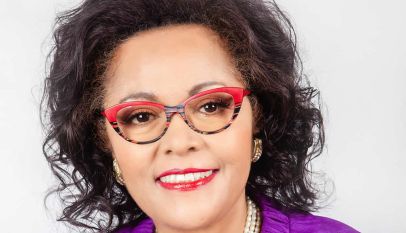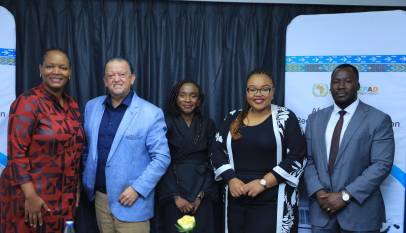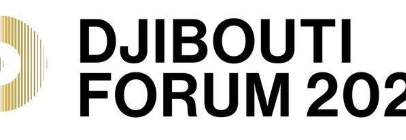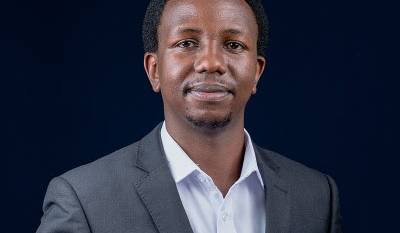INTERVIEW | Sasakawa now promoting market-oriented, regenerative, nutrition-sensitive agriculture” – Mel Oluoch
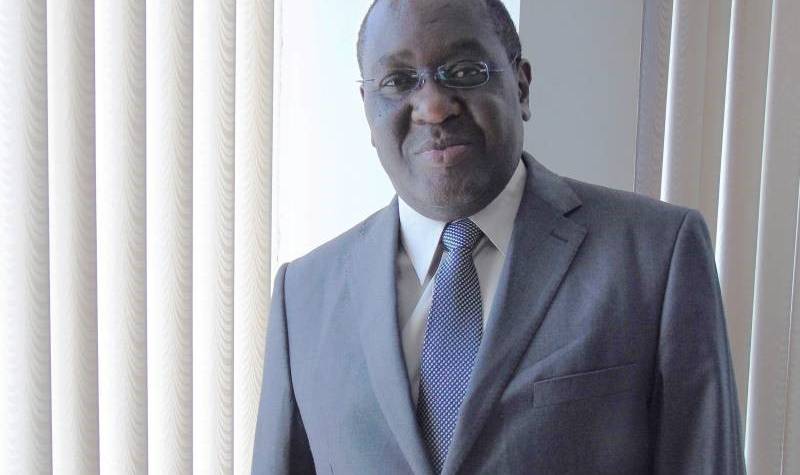
Dr. Mel Oluoch is the regional director of Sasakawa Africa Association (SAA),` now focused on supporting African smallholder farmers through promoting market-oriented, regenerative and nutrition-sensitive agriculture
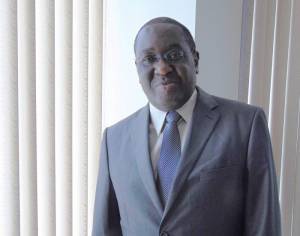
By Adam Alqali
Newspage: SAA‘s new strategic plan is focused on promoting market-oriented, regenerative and nutrition-sensitive agriculture. Can you please explain what this new strategic plan is about?
Oluoch: SAA has four core countries of focus which include Nigeria, Ethiopia, Mali and Uganda but on a larger scale, we work across 11 countries around Africa. We now have a new strategic plan which will be rolled out this year and it covers three pillars namely; Regenerating agriculture, Nutrition-sensitive agriculture, and Market-oriented agriculture.
To this end, we want to ensure a sustainable intensification of the cropping system to foster improved productivity as well as the introduction of nutrient-based crops to help improve access to nutrition in the rural areas. Through these pillars, we want to change the mindset of farmers so they can begin to engage in agriculture as a business enterprise, avoid being exploited through unfair market prices and subsequently get good returns on their investment.
Additionally, we have cross-cutting areas of focus which help to strengthen our three strategic pillars including capacity-building which is a continuation of our Sasakawa Africa Fund for Extension Education (SAFE) programme that has been merged with the larger SAA framework. We want to continue training extension agents and high school graduates, as our own practical way of meeting the needs of rural communities and which is different from the theoretical learning most students undergo in school.
We are also leveraging ICT and digital technologies to build a digital extension services platform that addresses the needs of farmers and extension workers – on the basis of communication, access to information and acquisition of technologies. The digital approach to providing extension services is key to enhancing communication, addressing farmers’ challenges in the quickest way possible towards achieving agricultural transformation.
There is also another dimension which entails the inclusion of women, youths and people with disabilities across all aspects of our agricultural interventions. Youths have the capacity to innovate and leverage the digital extension services that we are promoting to provide services to farmers across all value chains and earn a living in the process.
Newspage: One of the three pillars of SAA’s new strategic plan is nutrition-sensitive agriculture which is directly linked to SDG 2, which seeks to end hunger by 2030. How do you intend to help Africa achieve this all-important goal?
Oluoch: Producing surplus food is the key to fighting hunger. Thus, the idea is to introduce cutting-edge technologies which can improve productivity and this is why we are introducing regenerative agriculture to improve soil health across rural communities which comes with long-term benefits of about 2-3 years after we start them.
We want to help the farmers generate surplus produce which will enable them keep certain portion of their harvest to feed their families and sale some in the market to earn livelihood. We are therefore bringing together farmers’ associations to work together and be able to have access to all necessary inputs like fertilizers, seeds, agro-chemicals, among others, at community level since lack of access to farm inputs is often a huge challenge for the farmers.
Through such associations, they can also market their produce as a group and can get a premium price for their produce. This will help them generate additional income to enhance their livelihoods and equally help them buy other kinds of food staples which will help them diversify their diet, alleviate malnutrition and ameliorate hunger.
Newspage: Africa’s population is largely youthful which comes with a lot of potentials; to what extent would SAA’s new strategic plan help empower African youths?
Oluoch: Generally, youths don’t want to engage in agriculture because it is crude and strenuous, however, we are trying to change the mindset of young people to begin to see agriculture as a business enterprise – rather than simply as a means of producing food for self-sustenance. In that way they can leverage the business opportunities presented by agriculture to make money.
We are also helping young people to integrate innovative technologies into agriculture so as to benefit from the sector. By exploiting agricultural technologies, African youths can benefit from opportunities in agriculture and earn livelihoods. Youth can venture across the entire value chain like the production and marketing of horticultural products, running agro-processing machineries, providing inputs to farmers at the rural level, amongst others.
Newspage: How important is gender mainstreaming in SAA’s new strategic plan?
Oluoch: We are currently in the process of making sure that gender is mainstreamed in every aspect of our work, particularly with regards to capacity building. In terms of our partnership with over 30 universities and colleges around Africa, we want to increase women’s participation in the capacity building trainings by universities and colleges so they can become part of our extension agents tasked with primarily addressing gender-based issues.
We are also mainstreaming gender at organizational level so as to improve women’s participation in everything we do. We want to prepare women to effectively engage in farming as a business enterprise and part of this is introducing the element of value addition. We are therefore training women to add value to their agricultural products before selling them in the market.
We are also training women farmers to diversify their agric produce, in addition to adding value to their products as well as helping women service providers to operate agro-processing machines themselves and generate income which will help in the area of wealth generation.
Editor’s note: This interview has been edited for length, clarity and flow


